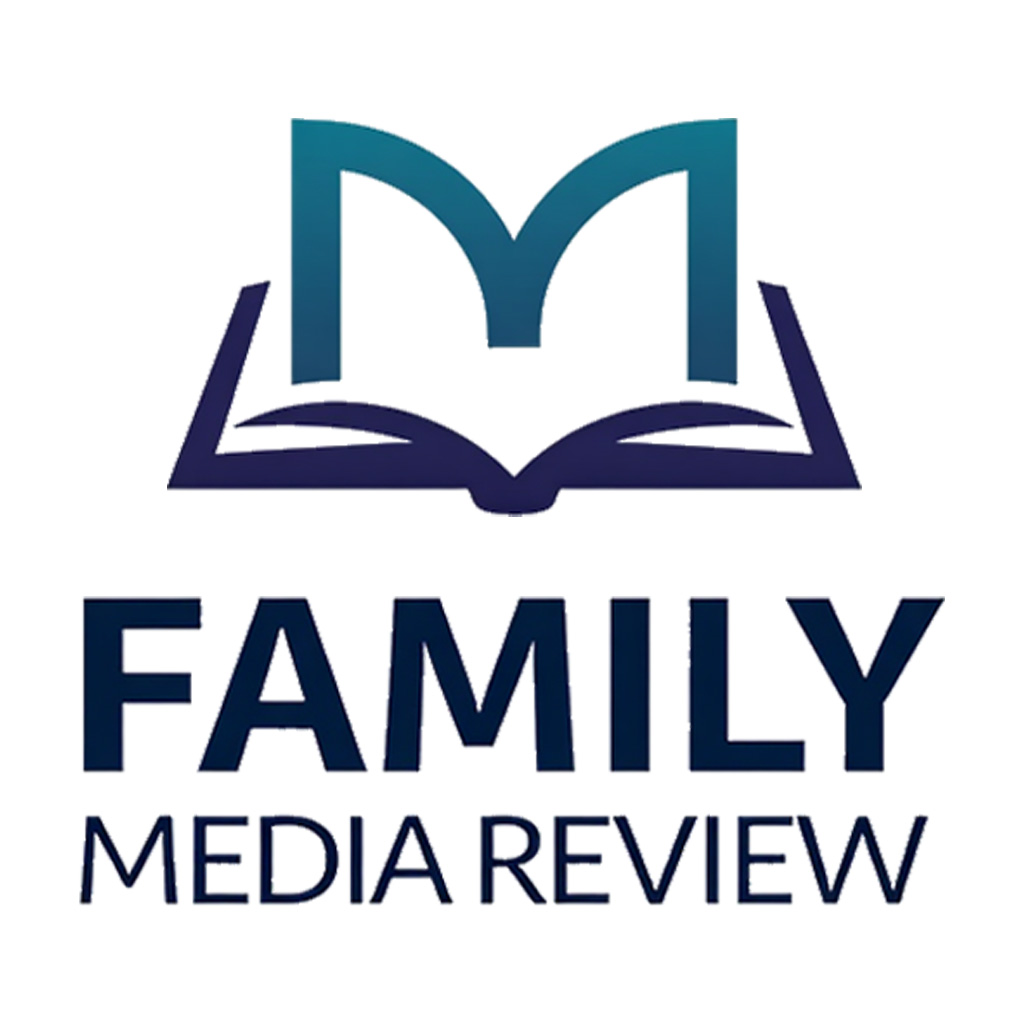Our Approach to Learning Media Evaluation for Christian Families
Published: June 2025 | Reading Time: 7 minutes | Methodology Explanation
“Isn’t educational content automatically good for families? If it’s teaching something, why does it need the same scrutiny as entertainment media?”
This assumption—that anything labeled “educational” is automatically beneficial and family-appropriate—reflects one of the most dangerous blind spots in modern family media consumption. Educational content often carries even more influence than entertainment because parents and children approach it with less critical thinking, assuming that “learning” content is inherently wholesome and trustworthy.
The reality is more complex. Educational media can be just as influential in shaping worldviews, values, and thinking patterns as entertainment—often more so, because it claims authority and credibility that entertainment doesn’t.
Why Educational Content Needs Careful Analysis
1. Educational Content Claims Authority
Credibility Assumption: When content is presented as “educational,” families naturally lower their critical defenses and assume the information is accurate, complete, and beneficial.
Expert Status: Educational content often presents itself with the authority of expertise, making children and parents less likely to question underlying assumptions or biases.
Curriculum Integration: Educational content frequently becomes part of formal or informal learning plans, receiving repeated exposure and extended engagement.
Example: A documentary about dinosaurs might present evolutionary timelines as established fact without acknowledging scientific debates or alternative perspectives, influencing children’s understanding of origins and earth history.
2. Worldview Transmission Often Happens Subtly
Embedded Assumptions: Educational content rarely presents itself as worldview training, but virtually all educational material contains philosophical assumptions about truth, reality, human nature, and meaning.
Authority Sources: What authorities are quoted? What sources are considered credible? These choices reflect underlying worldview commitments that may not align with Christian faith.
Methodology Bias: How are conclusions reached? What evidence is considered valid? The approach to knowledge itself can reflect secular humanist assumptions.
Example: A history documentary might present all religions as equally valid cultural expressions rather than acknowledging truth claims, subtly promoting relativism without explicitly discussing philosophy.
3. Age-Inappropriate Complexity Masquerades as Learning
Advanced Themes: Educational content often introduces children to complex social, political, or scientific topics before they’re developmentally ready to process them appropriately.
Emotional Manipulation: Some educational content uses disturbing images or emotional appeals that are inappropriate for young audiences, justified by claimed educational value.
Values Confusion: Complex moral and social issues are sometimes presented to children who lack the developmental capacity to think critically about competing viewpoints.
Example: An environmental documentary might show graphic images of pollution or animal suffering to children too young to process these images appropriately, creating anxiety rather than helpful learning.
Our Educational Content Evaluation Framework
Content Accuracy & Completeness
Factual Accuracy
- Are facts presented correctly and in proper context?
- Are complex topics simplified appropriately for target age group?
- Is outdated information clearly identified?
- Are uncertain or debated topics presented as established fact?
Perspective Balance
- Are multiple viewpoints acknowledged when they exist?
- Are Christian perspectives included or respectfully noted?
- Is the difference between fact and interpretation clear?
- Are controversial topics handled age-appropriately?
Source Quality
- What experts and authorities are cited?
- Are sources reputable and current?
- Is bias in source selection acknowledged?
- Are primary sources distinguished from secondary interpretation?
Worldview Analysis
Philosophical Assumptions
- What assumptions about truth, reality, and knowledge underlie the content?
- How do these assumptions align with or conflict with Christian worldview?
- Are secular humanist perspectives presented as neutral fact?
- Is religious content treated respectfully or dismissively?
Authority Structure
- Who or what is presented as the ultimate authority on truth?
- How is disagreement with scientific or academic consensus handled?
- Is there room for divine revelation in the epistemological framework?
- Are parents and family authority respected or undermined?
Values Integration
- What values are promoted explicitly or implicitly?
- How do these align with biblical principles and family values?
- Are competing value systems acknowledged or ignored?
- Is moral relativism promoted or opposed?
Age Appropriateness & Development
Cognitive Readiness
- Is content matched to developmental learning capacity?
- Are abstract concepts introduced appropriately for age group?
- Is complexity balanced with comprehension ability?
- Are thinking skills developed gradually and systematically?
Emotional Appropriateness
- Is content emotionally suitable for target age group?
- Are disturbing images or concepts handled carefully?
- Is fear used appropriately as motivation or inappropriately as manipulation?
- Are children’s emotional responses considered in content design?
Family Context
- Does content support or undermine family authority and values?
- Are parents equipped to address questions and concerns raised?
- Is content designed for family discussion or independent consumption?
- Are family standards and convictions respected?
Categories of Educational Content We Evaluate
Documentary Films & Series
- Nature & Science: Examining underlying assumptions about origins, environmental stewardship, and scientific methodology
- History: Analyzing perspective, source selection, and cultural interpretation
- Biography: Evaluating role model presentation and character lesson integration
- Current Events: Assessing bias, age-appropriateness, and values promotion
Educational Programming
- Children’s Educational TV: Reviewing character development, learning methods, and values transmission
- Online Learning Platforms: Evaluating curriculum approach, worldview integration, and family compatibility
- Educational Games: Analyzing learning effectiveness, content appropriateness, and skill development
Reference & Research Materials
- Encyclopedias & Reference Books: Examining authority sources, perspective balance, and accuracy
- Textbooks & Curriculum: Analyzing worldview assumptions, factual accuracy, and family compatibility
- Online Resources: Evaluating credibility, age-appropriateness, and bias in educational websites
What We Look for in Recommended Educational Content
Accurate Information Presented Age-Appropriately
Content that provides factual information suitable for developmental stage without overwhelming complexity or emotional intensity.
Balanced Perspective on Controversial Topics
Educational material that acknowledges multiple viewpoints on debated issues rather than presenting one perspective as established fact.
Respect for Family Authority and Values
Content that supports rather than undermines parental authority and family value systems.
Integration Opportunities
Educational material that provides natural opportunities for family discussion and values integration.
Character Development Alongside Academic Learning
Content that builds character, virtue, and wisdom while providing academic knowledge.
Skills Development That Serves Family Goals
Educational approaches that develop thinking skills, creativity, and knowledge in ways that align with family educational objectives.
When We Recommend Caution or Avoidance
Content That Mocks or Undermines Faith
Educational material that presents religious faith as ignorance, superstition, or obstacle to learning.
Inappropriate Authority Claims
Content that presents debated theories as established fact or claims authority beyond its legitimate scope.
Age-Inappropriate Emotional Content
Educational material that exposes children to disturbing images, concepts, or emotional intensity beyond their developmental capacity.
Values Contradiction
Content that actively promotes values fundamentally incompatible with Christian faith and family principles.
Parent-Undermining Approaches
Educational content that encourages children to reject family authority or values in favor of outside “expert” opinions.
How Our Reviews Help Families
For Homeschool Families
- Curriculum Selection: Detailed analysis of educational philosophy and content quality
- Worldview Integration: Guidance for maintaining biblical perspective while using secular educational resources
- Age-Appropriate Sequencing: Help determining when children are ready for complex topics
- Supplementary Materials: Identifying content that enhances rather than conflicts with family educational goals
For Traditional School Families
- Homework Support: Understanding what children encounter in educational assignments
- Discussion Preparation: Anticipating questions and challenges from school-assigned content
- Values Reinforcement: Strengthening family values that may be challenged by educational content
- Critical Thinking Development: Teaching children to evaluate educational claims thoughtfully
For General Family Learning
- Documentary Nights: Choosing educational entertainment that builds family knowledge
- Museum & Field Trip Planning: Preparing for educational experiences outside the home
- Online Learning Safety: Navigating educational websites and platforms securely
- Skill Development: Identifying content that builds practical skills and knowledge
Special Considerations for Educational Content
Science & Origins Topics
- Evolution vs. Creation: How educational content handles origins questions and whether alternative perspectives are acknowledged
- Climate & Environment: Examining underlying assumptions about human responsibility, earth stewardship, and environmental activism
- Health & Biology: Reviewing age-appropriateness of bodily function education and values integration in health topics
History & Social Studies
- Historical Interpretation: Analyzing whose perspective is privileged and how events are framed
- Cultural Relativism: Examining whether all cultures and practices are presented as equally valid
- American Heritage: Reviewing how founding principles, religious heritage, and cultural development are presented
- Current Events: Evaluating bias in presenting contemporary political and social issues
Character & Life Skills
- Decision-Making Models: Examining what authority sources are recommended for moral and life decisions
- Relationship Education: Reviewing how family structures, gender roles, and relationships are presented
- Financial Literacy: Analyzing underlying assumptions about wealth, work, and resource stewardship
The Bottom Line
We review educational content because learning is too important to leave to chance. Educational media powerfully shapes how children think about truth, reality, authority, and values—often more influentially than entertainment because it’s approached with less critical awareness.
Educational content at its best provides accurate information in age-appropriate ways while respecting family values and encouraging thoughtful engagement with important topics.
Educational content at its worst presents biased information as neutral fact, undermines family authority, or exposes children to content they’re not developmentally ready to process.
Most educational content falls somewhere in between—containing valuable information alongside perspectives that may conflict with Christian worldview or family values. Our reviews help families engage the valuable elements while maintaining discernment about potentially problematic aspects.
Christian families don’t have to choose between excellent education and biblical faithfulness. With careful evaluation and thoughtful engagement, families can provide children with outstanding learning opportunities that strengthen rather than undermine faith and family values.
The goal isn’t to avoid all educational content that isn’t explicitly Christian, but to engage thoughtfully with educational resources while maintaining clear biblical perspective and family authority over children’s learning and development.
Related Posts in This Series
- Why We Review Movies – Film analysis for Christian families (Coming Soon)
- Why We Review Books – Literature evaluation approach (Coming Soon)
- Why We Review Games & Activities – Interactive content for families (Coming Soon)
Related Resources
- Educational Content Hub – Browse educational media reviews (Coming Soon)
- Understanding Our Rating System – Detailed evaluation methodology
- Family Favorites Educational Picks – Our highest-rated learning content (Coming Soon)
- Homeschool Resource Guides – Content organized by subject area (Coming Soon)
How do you approach educational content selection for your family? Have you encountered educational materials that surprised you with their worldview assumptions? Share your experiences in the comments below—your insights help other families navigate these decisions more effectively!





0 Comments